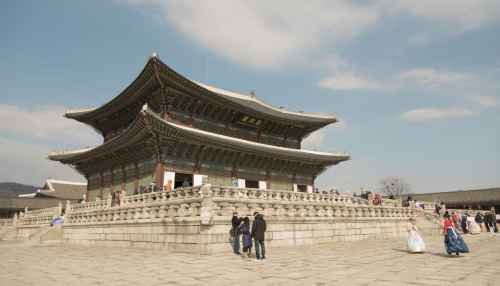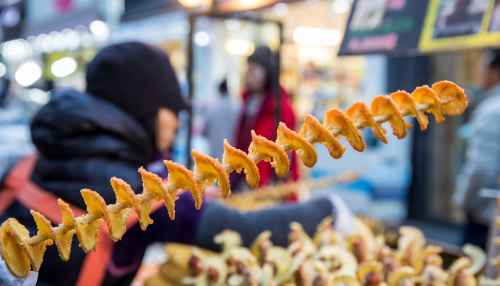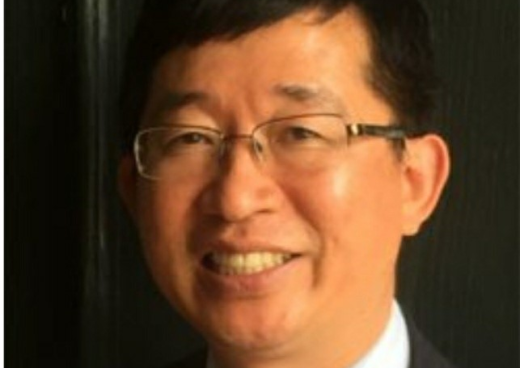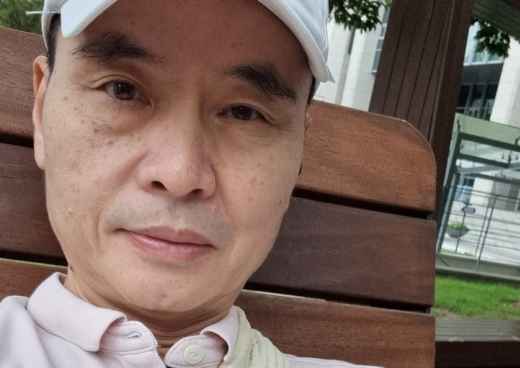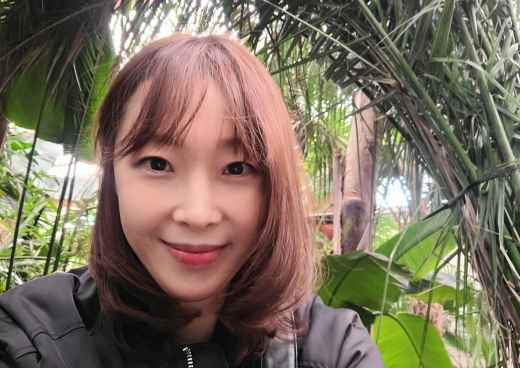Table Of Contents
- What Makes Seongsu-dong Seoul Special?
- Seongsu's Coffee Culture and Best Cafés
- Seoul Forest and Green Spaces
- Creative Spaces and Pop-Up Culture
- Exploring Side Streets and Hidden Gems
- Food Scene: From Traditional to Trendy
- Getting Around and Transportation
- Shopping Innovation: Containers to Studios
- Photography and Visual Culture
- Planning Your Visit
- Cultural Impact and Future Significance
- Advanced Exploration and Community Engagement
- Frequently Asked Questions
- Your Seongsu Adventure Awaits
There's something magical about stumbling into a neighborhood that feels like a well-kept secret, even when it's hiding in plain sight. Seongsu-dong, tucked away in Seongdong-gu Seoul, has that exact quality, a district that transforms former factories into art galleries, shipping containers into boutique shops, and red brick warehouses into some of the best coffee shops you'll find in South Korea.
Walking through the streets of Seongsu dong Seoul feels like discovering Seoul's answer to Brooklyn. The industrial bones of this neighborhood tell stories of Korea's manufacturing past, while young artists and entrepreneurs breathe new life into every corner. From the moment you exit Seongsu subway station, you're stepping into Seoul's most creatively charged district.
This isn't your typical Seoul experience filled with palace tours and tourist hotspots. The things to do in Seongsu dong Seoul revolve around slow exploration, coffee culture, and authentic neighborhood discoveries that locals guard as their own treasures.
What Makes Seongsu-dong Seoul Special?
Seongsu dong represents Seoul's creative renaissance. Located in Seongdong gu, this neighborhood sits perfectly positioned between Seoul Forest and the Han River, offering both urban creativity and natural respite. The area's transformation from an industrial hub to Seoul's hippest district mirrors the broader evolution of Korean culture, honoring the past while boldly embracing the future.
The charm of Seongsu lies in its authenticity. Unlike heavily touristed areas, this neighborhood maintains its local character while welcoming visitors with open arms. Pop ups appear overnight in former factories, street art adorns building walls, and every side street promises a new discovery.
Seongsu's Coffee Culture and Best Cafés
Cafe Onion Seongsu: The Architectural Marvel
No visit to Seongsu dong would be complete without experiencing Cafe Onion Seongsu. This architectural marvel transforms a former factory into a coffee lover's paradise, complete with soaring high ceilings and industrial fixtures that create the perfect photo booth moment.
The ground floor buzzes with coffee enthusiasts savoring perfectly crafted lattes, while the upper floors offer quieter spaces for photo ops and contemplation. Cafe Onion has mastered the art of creating spaces that feel both grand and intimate, industrial yet welcoming.
Standard Bread and Other Coffee Shop Gems
Just a short walk from Cafe Onion, Standard Bread represents everything wonderful about Seongsu's food scene. Their cinnamon rolls have achieved legendary status among locals, and their coffee rivals any specialty roaster in Seoul. The cafe occupies a beautifully converted space that maintains industrial elements while creating warmth through thoughtful design.
Seongsu's coffee shop scene extends far beyond its Instagram-famous locations. Small, owner-operated cafes line the side streets, each offering unique perspectives on Korean coffee culture. These cool cafes often occupy ground floor spaces in converted buildings, creating intimate settings perfect for conversation or quiet reflection.
From specialty tea blends to innovative coffee preparations, Seongsu's cafe culture reflects the neighborhood's broader creative spirit. Every coffee shop contributes to the area's reputation as one of Seoul's most dynamic districts.
Looking for a private city experience in Seoul?
Explore the city with a local who plans a private day just for you; no groups, no scripts.
Seoul Forest and Green Spaces
Seoul Forest Park: Your Urban Oasis
Seoul Forest Park serves as Seongsu's natural heart, offering respite from urban exploration. The park's walking paths connect seamlessly with the neighborhood's streets, creating opportunities for combined nature and culture experiences. Morning visits reveal families exercising together, elderly residents practicing tai chi, and young professionals finding moments of peace.
Seoul Forest station provides convenient access to extended Han River explorations. The river's cycling paths and walking trails offer different perspectives on Seoul's geography, while connecting Seongsu to broader metropolitan adventures. Han River activities complement Seongsu's urban pleasures perfectly, after hours of cafe hopping and art browsing, the river provides space for reflection and physical activity.
The forest offers countless photo ops, from seasonal flower displays to architectural elements that frame the city skyline. The proximity to Seongsu's industrial aesthetic creates interesting visual contrasts, with modern art installations scattered throughout the park dialoguing with the neighborhood's creative energy.
Creative Spaces and Pop-Up Culture
Exhibition Spaces and Art Galleries
Seongsu Yeonbang embodies the neighborhood's commitment to accessible art and community engagement. This space regularly hosts exhibitions featuring young artists and experimental projects that might not find homes in traditional art galleries. The venue's programming reflects Seongsu's democratic approach to culture, art that speaks to local residents while attracting visitors from across Seoul.
Tongue Planet represents Seongsu's playful relationship with contemporary culture. This space blends traditional exhibition formats with interactive experiences that appeal to Seoul's social media-savvy population. Art installations at Tongue Planet often incorporate elements that encourage visitor participation, creating experiences that feel more like collaborative creation than passive observation.
Luxury Brands and Pop Ups
Dior Seongsu represents high fashion's recognition of the neighborhood's cultural significance. This temporary installation demonstrated how luxury brands increasingly seek authentic cultural connections rather than traditional retail spaces. Pop up stores like Dior's Seongsu location highlight the neighborhood's growing reputation as Seoul's creative center.
Pop ups appear throughout Seongsu with remarkable regularity, transforming empty storefronts into temporary cultural experiences. These installations range from fashion showcases to food experiments, always reflecting the neighborhood's creative energy. The temporary nature creates urgency and excitement, residents and visitors develop habits of regular exploration, knowing yesterday's empty space might house today's most interesting experience.
Exploring Side Streets and Hidden Gems
Yeonmujang Gil and Historic Architecture
Yeonmujang Gil represents Seongsu's evolution perfectly, a street where former factories stand alongside new creative enterprises. Walking this road provides insight into both the neighborhood's industrial history and its artistic future. The street's name has become synonymous with Seongsu's creative identity.
Seongsu's red brick warehouses tell stories of Seoul's manufacturing past while housing contemporary businesses. These building conversions demonstrate thoughtful preservation that honors history while serving current needs. Many warehouses now contain boutique shops, art galleries, or co-working spaces, creating visual harmony while allowing diverse business expressions.
Boutique Shopping and Local Character
Seongsu's shopping scene reflects the neighborhood's creative character. Boutique shops occupy converted industrial spaces, selling everything from locally designed clothing to handcrafted home goods. Shopping in Seongsu feels like treasure hunting, each store offers curated selections that reflect individual owners' tastes and values.
Beyond main thoroughfares, Seongsu's side streets contain the neighborhood's most authentic experiences. Small galleries showcase emerging artists, family-run restaurants serve traditional Korean dishes, and quiet tea shops provide spaces for conversation and reflection. These smaller streets maintain residential character while welcoming commercial activity, creating rhythms that feel natural rather than forced.
What if your day in Seoul was planned by someone who knows it — and you?
City Unscripted matches you with a local host who creates a private experience based on your interests, not a set route.
Food Scene: From Traditional to Trendy
Korean Cuisine in Modern Settings
While coffee culture dominates Seongsu's reputation, the neighborhood's restaurants offer equally impressive experiences. Korean eateries serve traditional dishes alongside fusion experiments that reflect Seoul's evolving culinary landscape. Local restaurants often occupy spaces that reflect the neighborhood's industrial heritage, with exposed brick walls, high ceilings, and design elements that create atmosphere while serving delicious food.
Seongsu's Korean restaurants demonstrate how traditional cuisine adapts to contemporary settings. Modern interpretations of classic dishes appear alongside traditional preparations, creating dining experiences that honor the past while embracing innovation. The neighborhood's food scene reflects broader Seoul trends while maintaining local character.
Sweet Treats and Alternative Beverages
Seongsu's bakeries and dessert shops complement its coffee culture perfectly. Beyond Standard Bread's famous cinnamon rolls, numerous establishments offer Korean and international sweets that satisfy diverse tastes. These food experiences contribute to Seongsu's appeal as a whole day destination, with visitors structuring explorations around meal times.
Beyond coffee, Seongsu's beverage culture includes traditional Korean tea houses and establishments serving innovative drinks. Tea shops often emphasize calm and contemplation, contrasting with the energy of busy coffee shops. The variety ensures that different moods and preferences find appropriate settings within the same neighborhood.
Getting Around and Transportation
Subway Stations and Access Points
Seongsu station serves as the primary entry point for neighborhood exploration. The subway line connects efficiently to central Seoul locations while providing easy access to Seongsu's main attractions. From Seongsu subway station, most neighborhood highlights remain within comfortable walking distance.
Seoul Forest station offers another convenient entry point, particularly for visitors prioritizing park activities. This nearest subway station to Seoul Forest provides seamless connections between natural and cultural experiences. Ttukseom station extends exploration possibilities by connecting Seongsu to Konkuk University areas and additional Han River access points.
Successful Seongsu exploration benefits from flexible planning rather than rigid itineraries. The neighborhood rewards spontaneous discovery and unhurried exploration of streets and spaces. Many attractions cluster around major streets, making walking the most effective way to experience Seongsu's character.
Shopping Innovation: Containers to Studios
Common Ground and Pop-Up Shopping
Common Ground revolutionized Seoul shopping by transforming shipping containers into retail spaces. This innovative approach reflects Seongsu's broader commitment to creative reuse of industrial materials and spaces. The container mall attracts both locals and tourists with its unique aesthetic and diverse vendor offerings.
Seongsu's pop up culture extends to shopping, with temporary retail experiences appearing regularly throughout the neighborhood. These installations often feature emerging designers and experimental retail concepts, creating shopping experiences that feel more like cultural events than commercial transactions.
Local Design and Handmade Goods
Seongsu's shopping scene emphasizes local creation and handmade quality over mass production. Boutique shops feature Korean designers and artisans whose work reflects both traditional techniques and contemporary aesthetics. These shopping experiences connect visitors directly with creators, often in spaces where design and production happen simultaneously.
Unlike Seoul's large shopping districts, Seongsu prioritizes discovery over efficiency. Stores often occupy unique spaces with irregular hours and seasonal offerings that require patience and flexibility. This approach creates more personal shopping experiences while supporting local businesses and independent creators.
Tip
We match you with the right host, not just any guide.Want to experience the real Seoul with someone who lives there?
A fully private experience, planned and led by a local host who tailors the day to you
Photography and Visual Culture
Architecture and Street Art Photography
Seongsu's industrial architecture provides compelling photography subjects throughout the neighborhood. Former factories, red brick warehouses, and converted spaces offer visual narratives about Seoul's urban evolution. High ceilings, exposed structural elements, and thoughtful lighting in converted spaces create dramatic interior photography opportunities.
Street art throughout Seongsu ranges from large murals to small installations, each contributing to the neighborhood's visual narrative. These works often reference both Korean cultural elements and international artistic trends. Many pieces explicitly welcome documentation while requesting respect for community context.
Photo Opportunities and Social Media Culture
Seongsu's businesses often incorporate photo booth elements into their designs, recognizing photography's role in contemporary social experiences. Many businesses utilize multiple floors in converted buildings, creating diverse photography opportunities within single locations. Each floor often features different design elements and atmospheric qualities.
Seongsu's popularity on social media requires thoughtful photography practices that respect local community and business needs. Many locations welcome documentation while requesting consideration for other visitors and daily operations. The neighborhood's authentic character depends partly on maintaining balance between sharing and preservation.
Planning Your Visit
Timing and Duration
Seongsu reveals different personalities throughout the day and week. Morning visits showcase neighborhood rhythms as businesses open and residents begin their days. Late morning and early afternoon provide optimal lighting for photography and comfortable walking conditions. Weekday visits often feel more authentic, with fewer crowds and greater opportunities for meaningful interactions.
A whole day in Seongsu allows for thorough exploration without rushing. This timeframe accommodates leisurely cafe visits, gallery browsing, shopping discovery, and meal experiences while leaving time for spontaneous exploration. Half-day visits remain satisfying if focused on specific interests like coffee culture, art galleries, or shopping.
Combining with Other Seoul Attractions
Seongsu's location enables easy combination with Seoul Forest, Han River activities, and nearby neighborhoods like those around Konkuk University. These connections create full-day or multi-day itineraries that showcase different aspects of Seoul's character. Public transportation links connect Seongsu efficiently to central Seoul attractions.
Seongsu's outdoor elements, including street art viewing and Seoul Forest visits, depend partly on weather conditions. Spring and fall provide optimal conditions for extended walking exploration. Each season brings different advantages: spring cherry blossoms in Seoul Forest, summer evening explorations, fall foliage photography, and winter's cozy indoor cafe experiences.
Practical Preparation
Comfortable walking shoes enable full neighborhood exploration across varied terrain and surfaces. Portable phone chargers support extended photography and navigation needs throughout long exploration days. Cash remains useful for smaller businesses, though most establishments accept cards.
Cultural Impact and Future Significance
Seoul's Creative Development Model
Seongsu demonstrates Seoul's commitment to cultural innovation while respecting historical foundations. The neighborhood's transformation from industrial district to creative hub illustrates broader Korean approaches to urban development and cultural preservation. Young artists, entrepreneurs, and creative professionals who choose Seongsu contribute to conversations about Seoul's cultural direction.
Other Seoul neighborhoods study Seongsu's development approach, seeking to replicate its success in converting industrial areas to cultural districts. The model emphasizes organic growth over master planning, community engagement over external investment. Seongsu's experience provides insights for urban planning throughout South Korea and internationally.
Global Recognition and Local Authenticity
Seongsu's growing international profile attracts visitors from throughout Asia and beyond, contributing to Seoul's reputation as a global cultural center. The neighborhood's success balances international appeal with local relevance, demonstrating how Korean culture can engage global audiences while serving domestic needs and values.
Seongsu reflects broader Korean cultural trends including emphasis on craft culture, independent business support, and integration of traditional and contemporary aesthetics. The neighborhood serves as a testing ground for cultural innovations that often spread throughout Seoul and Korea.
Ready to plan your perfect day in Seoul?
Start your experienceAdvanced Exploration and Community Engagement
Connecting with Creative Communities
Seongsu's creative communities welcome respectful engagement from visitors interested in deeper cultural exchange. Many businesses and cultural spaces host events that provide opportunities for meaningful interaction beyond casual tourism. Language exchange events, workshop offerings, and collaborative projects create possibilities for extended engagement with neighborhood cultural life.
Seongsu hosts regular events that showcase local talent and cultural programming throughout the year. Art gallery openings, pop up launches, and community celebrations provide special access to neighborhood cultural life. Event schedules change frequently, reflecting the area's dynamic character.
Supporting the Local Economy
Thoughtful consumption choices support Seongsu's creative economy while enhancing visitor experiences. Purchasing from local designers, eating at independent restaurants, and engaging with services provided by neighborhood residents contributes to economic sustainability. Many businesses offer products or services unavailable elsewhere in Seoul.
Advanced exploration reveals connections between Seongsu and adjacent neighborhoods, creating extended routes that showcase broader Seongdong gu character. Walking connections to areas around Konkuk University and Han River recreational spaces provide context for Seongsu's position within Seoul's larger urban fabric.
Frequently Asked Questions
Is Seongsu-dong worth visiting?
Absolutely. Seongsu dong offers authentic Seoul experiences that differ significantly from traditional tourist areas. The neighborhood provides insight into contemporary Korean culture while maintaining approachable scale and genuine local character. Visitors interested in coffee culture, contemporary art, creative shopping, and neighborhood exploration find Seongsu particularly rewarding.
The area's compact size and diverse offerings enable satisfying experiences regardless of available time. Whether seeking Instagram-worthy photo opportunities or meaningful cultural engagement, Seongsu delivers experiences that reflect Seoul's creative energy and cultural sophistication.
Why is Seongsu so popular?
Seongsu's popularity stems from its authentic transformation from industrial district to cultural hub. The neighborhood demonstrates how Korean creativity adapts historical spaces for contemporary use while maintaining genuine character rather than artificial tourist attraction. Social media attention initially highlighted Seongsu's aesthetic appeal, but sustained popularity reflects substantial cultural offerings and meaningful experiences.
The neighborhood's creative businesses, cultural programming, and community engagement create experiences that feel both accessible and special, contributing to word-of-mouth recommendations and repeat visitation.
How far is Seongsu from Seoul?
Seongsu is located within Seoul, specifically in Seongdong gu. The question might refer to distance from central Seoul areas like Myeongdong or Gangnam. Subway connections make Seongsu easily accessible from anywhere in Seoul, typically requiring 30-45 minutes from central locations. The neighborhood's position near Seoul Forest and Han River provides convenient access to both urban cultural attractions and natural recreational opportunities.
How far is Seongsu from Myeongdong?
Seongsu and Myeongdong connect via Seoul's subway system, requiring approximately 35-40 minutes depending on specific starting and ending points. The trip typically involves one transfer and uses Line 2 and Line 4 connections. This proximity enables easy combination of Seongsu's local cultural experiences with Myeongdong's shopping and dining options within single-day Seoul itineraries.
Your Seongsu Adventure Awaits
Seongsu dong Seoul represents everything compelling about contemporary Korean culture—respect for history combined with creative innovation, local authenticity that welcomes global engagement, and community development that prioritizes quality over quantity. This neighborhood rewards slow exploration and genuine curiosity while providing Instagram-worthy moments and cultural insights.
Whether you spend a morning exploring coffee shops, an afternoon browsing art galleries, or a whole day combining Seoul Forest walks with boutique shopping adventures, Seongsu offers experiences that reveal Seoul's creative heart. The neighborhood's conversion of former factories into cultural spaces demonstrates how thoughtful urban development can honor the past while creating exciting futures.
Plan your visit to this remarkable neighborhood and discover why Seongsu has become Seoul's most talked-about district. From the moment you emerge from the subway station, you'll understand why this corner of Seoul captures both local pride and international attention.
Your Seoul experience becomes richer when it includes time in neighborhoods where authentic culture thrives alongside creative innovation. Seongsu dong provides exactly that combination, creating memories that extend far beyond typical tourist experiences.
For more authentic Seoul experiences that showcase the city's cultural depth, consider exploring other creative neighborhoods and cultural districts. Seoul's creative energy extends throughout the metropolitan area, with each district offering unique perspectives on Korean culture and contemporary urban life.
Ready to discover more about what Seoul offers today? Explore our comprehensive guide to things to do in Seoul today for current events, seasonal activities, and insider recommendations that complement your Seongsu adventure.
What if your day in Seoul was planned by someone who knows it — and you?
City Unscripted matches you with a local host who creates a private experience based on your interests, not a set route.
Want to experience the real Seoul with someone who lives there?
A fully private experience, planned and led by a local host who tailors the day to you
Meet Your Seoul Hosts
A personalized way to explore Seoul’s must-see landmarks beyond the tourist crowds.


